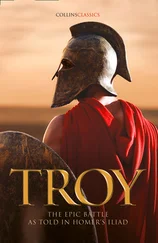Samuel Butler
The Masterpiece that Inspired Orwell's 1984 by Predicting the Takeover of Humanity by AI Machines
Published by

Books
- Advanced Digital Solutions & High-Quality eBook Formatting -
musaicumbooks@okpublishing.info
2017 OK Publishing
ISBN 978-80-272-2479-1
Preface to the First Edition Preface to the First Edition Table of Contents The Author wishes it to be understood that Erewhon is pronounced as a word of three syllables, all short—thus, Ĕ-rĕ-whŏn.
Preface to Second Edition
Preface to the Revised Edition
I. Waste Lands
II. In the Wool-Shed
III. Up the River
IV. The Saddle
V. The River and the Range
VI. Into Erewhon
VII. First Impressions
VIII. In Prison
IX. To the Metropolis
X. Current Opinions
XI. Some Erewhonian Trials
XII. Malcontents
XIII. The Views of the Erewhonians Concerning Death
XIV. Mahaina
XV. The Musical Banks
XVI. Arowhena
XVII. Ydgrun and the Ydgrunites
XVIII. Birth Formulae
XIX. The World of the Unborn
XX. What They Mean By It
XXI. The Colleges of Unreason
XXII. The Colleges of Unreason—Continued
XXIII. The Book of the Machines
XXIV. The Machines—Continued
XXV. The Machines—Concluded
XXVI. The Views of an Erewhonian Prophet Concerning the Rights of Animals
XXVII. The Views of an Erewhonian Philosopher Concerning the Rights of Vegetables
XXVIII. Escape
XXIX. Conclusion
“του yαρ ειναι δοκουντος αyαθου χαριν παντα πραττουσι παντες.”
—ARIST. Pol .
“There is no action save upon a balance of considerations.”
— Paraphrase .
Preface to the First Edition
Table of Contents
The Author wishes it to be understood that Erewhon is pronounced as a word of three syllables, all short—thus, Ĕ-rĕ-whŏn.
Preface to Second Edition
Table of Contents
Having been enabled by the kindness of the public to get through an unusually large edition of “Erewhon” in a very short time, I have taken the opportunity of a second edition to make some necessary corrections, and to add a few passages where it struck me that they would be appropriately introduced; the passages are few, and it is my fixed intention never to touch the work again.
I may perhaps be allowed to say a word or two here in reference to “The Coming Race,” to the success of which book “Erewhon” has been very generally set down as due. This is a mistake, though a perfectly natural one. The fact is that “Erewhon” was finished, with the exception of the last twenty pages and a sentence or two inserted from time to time here and there throughout the book, before the first advertisement of “The Coming Race” appeared. A friend having called my attention to one of the first of these advertisements, and suggesting that it probably referred to a work of similar character to my own, I took “Erewhon” to a well-known firm of publishers on the 1st of May 1871, and left it in their hands for consideration. I then went abroad, and on learning that the publishers alluded to declined the MS., I let it alone for six or seven months, and, being in an out-of-the-way part of Italy, never saw a single review of “The Coming Race,” nor a copy of the work. On my return, I purposely avoided looking into it until I had sent back my last revises to the printer. Then I had much pleasure in reading it, but was indeed surprised at the many little points of similarity between the two books, in spite of their entire independence to one another.
I regret that reviewers have in some cases been inclined to treat the chapters on Machines as an attempt to reduce Mr. Darwin’s theory to an absurdity. Nothing could be further from my intention, and few things would be more distasteful to me than any attempt to laugh at Mr. Darwin; but I must own that I have myself to thank for the misconception, for I felt sure that my intention would be missed, but preferred not to weaken the chapters by explanation, and knew very well that Mr. Darwin’s theory would take no harm. The only question in my mind was how far I could afford to be misrepresented as laughing at that for which I have the most profound admiration. I am surprised, however, that the book at which such an example of the specious misuse of analogy would seem most naturally levelled should have occurred to no reviewer; neither shall I mention the name of the book here, though I should fancy that the hint given will suffice.
I have been held by some whose opinions I respect to have denied men’s responsibility for their actions. He who does this is an enemy who deserves no quarter. I should have imagined that I had been sufficiently explicit, but have made a few additions to the chapter on Malcontents, which will, I think, serve to render further mistake impossible.
An anonymous correspondent (by the hand-writing presumably a clergyman) tells me that in quoting from the Latin grammar I should at any rate have done so correctly, and that I should have written “agricolas” instead of “agricolae”. He added something about any boy in the fourth form, &c., &c., which I shall not quote, but which made me very uncomfortable. It may be said that I must have misquoted from design, from ignorance, or by a slip of the pen; but surely in these days it will be recognised as harsh to assign limits to the all-embracing boundlessness of truth, and it will be more reasonably assumed that each of the three possible causes of misquotation must have had its share in the apparent blunder. The art of writing things that shall sound right and yet be wrong has made so many reputations, and affords comfort to such a large number of readers, that I could not venture to neglect it; the Latin grammar, however, is a subject on which some of the younger members of the community feel strongly, so I have now written “agricolas”. I have also parted with the word “infortuniam” (though not without regret), but have not dared to meddle with other similar inaccuracies.
For the inconsistencies in the book, and I am aware that there are not a few, I must ask the indulgence of the reader. The blame, however, lies chiefly with the Erewhonians themselves, for they were really a very difficult people to understand. The most glaring anomalies seemed to afford them no intellectual inconvenience; neither, provided they did not actually see the money dropping out of their pockets, nor suffer immediate physical pain, would they listen to any arguments as to the waste of money and happiness which their folly caused them. But this had an effect of which I have little reason to complain, for I was allowed almost to call them life-long self-deceivers to their faces, and they said it was quite true, but that it did not matter.
I must not conclude without expressing my most sincere thanks to my critics and to the public for the leniency and consideration with which they have treated my adventures.
June 9, 1872
Preface to the Revised Edition
Table of Contents
My publisher wishes me to say a few words about the genesis of the work, a revised and enlarged edition of which he is herewith laying before the public. I therefore place on record as much as I can remember on this head after a lapse of more than thirty years.
The first part of “Erewhon” written was an article headed “Darwin among the Machines,” and signed Cellarius. It was written in the Upper Rangitata district of the Canterbury Province (as it then was) of New Zealand, and appeared at Christchurch in the Press Newspaper, June 13, 1863. A copy of this article is indexed under my books in the British Museum catalogue. In passing, I may say that the opening chapters of “Erewhon” were also drawn from the Upper Rangitata district, with such modifications as I found convenient.
Читать дальше













